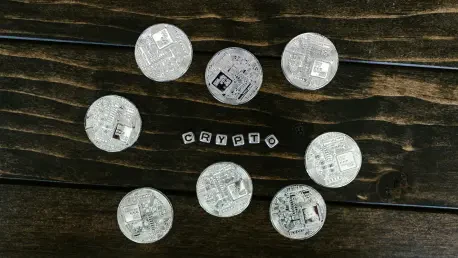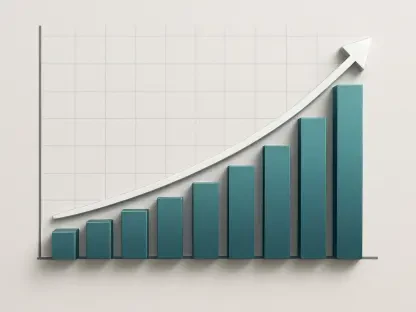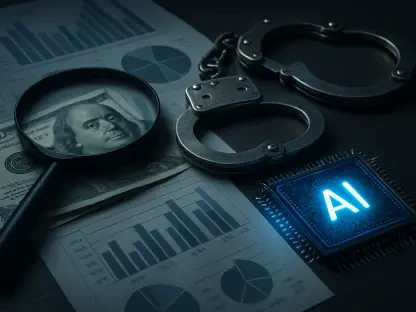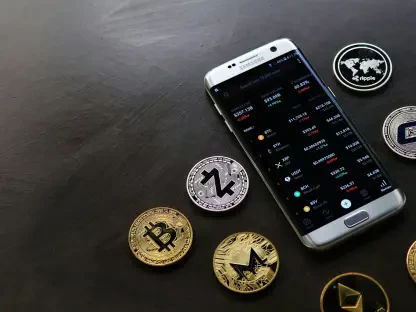In an era where financial markets are undergoing rapid transformation, a groundbreaking dialogue between a leading cryptocurrency exchange, Kraken, and the U.S. Securities and Exchange Commission (SEC) has captured the attention of investors and technologists alike, marking a pivotal moment in finance. This conversation centers on the potential of tokenized trading systems, a blockchain-based innovation that could redefine how traditional assets like stocks and bonds are accessed and traded globally. By leveraging the transparency and efficiency of distributed ledger technology, such systems promise to break down barriers, offering 24/7 trading and faster settlements. Yet, the path forward is not without challenges, as regulatory oversight and investor protection remain critical concerns. This development signals a pivotal moment in the integration of digital assets into mainstream finance, raising questions about how innovation can coexist with established safeguards.
Navigating the Future of Financial Markets
Pioneering Tokenized Asset Systems
The recent engagement between Kraken and the SEC’s Crypto Task Force marks a significant step toward integrating tokenized trading into regulated markets. Representatives from Kraken, alongside legal experts, presented a vision where blockchain technology enables continuous trading of traditional assets, enhancing global accessibility and liquidity. Unlike conventional markets with set hours and slower settlement processes, tokenized systems could allow investors to buy and sell at any time, potentially reducing costs and accelerating transactions. This innovation aligns with the growing demand for efficiency in financial systems, as demonstrated by Kraken’s existing services that enable non-U.S. investors to trade U.S. equities around the clock on blockchain platforms. However, the absence of traditional market controls, such as trading halts, poses unique risks that must be addressed to ensure stability and fairness for all participants.
Tokenized trading also offers the potential to democratize access to financial markets, particularly for investors in regions with limited infrastructure. By utilizing blockchain, these systems can bypass intermediaries, lowering entry barriers and fostering inclusion on a global scale. Kraken’s initiatives, including expansions to additional blockchain networks, highlight a competitive push to make such services widely available. Survey data underscores this trend, with a significant portion of U.S. investors expressing optimism about digital assets outperforming traditional stocks over the coming decade. Nevertheless, the success of these platforms hinges on creating robust mechanisms to mitigate fraud and ensure transparency, as unchecked vulnerabilities could undermine confidence in this emerging ecosystem. The ongoing discussions with regulators aim to strike a balance that supports growth while addressing these critical gaps.
Building Trust Through Collaboration
A key focus of the dialogue between Kraken and the SEC is the establishment of a regulatory framework that fosters trust in tokenized markets. Unlike earlier approaches often marked by enforcement actions, this collaboration reflects a shift toward proactive engagement, with both parties exploring how compliance can be integrated into innovative systems. The goal is to create an environment where institutional investors feel confident participating, which could accelerate broader adoption. Concerns raised by traditional exchange associations about inadequate investor protections highlight the need for market surveillance and risk management tools tailored to blockchain environments. Crafting these safeguards without stifling technological progress remains a delicate challenge for all stakeholders involved.
Beyond regulatory clarity, the collaboration seeks to address operational integrity in tokenized trading platforms. Ensuring that these systems can withstand cyber threats and maintain data accuracy is paramount, as any breach could have far-reaching consequences for market participants. Kraken’s efforts to align with regulatory expectations demonstrate a commitment to building secure and reliable infrastructure. This partnership with the SEC could set a precedent for how other cryptocurrency exchanges engage with oversight bodies, potentially shaping global standards for digital asset markets. As discussions progress, the emphasis on protecting investors while enabling innovation suggests a future where tokenized trading becomes a seamless part of the financial landscape, bridging the gap between traditional and digital economies.
Balancing Innovation with Oversight
Addressing Regulatory Challenges
The promise of tokenized trading systems is tempered by significant regulatory hurdles that must be navigated to ensure their viability. While blockchain offers unparalleled transparency and efficiency, the lack of established safeguards in these systems raises valid concerns about market manipulation and investor safety. Traditional financial markets rely on mechanisms like circuit breakers and strict monitoring to prevent volatility, but such tools are not yet fully adapted to decentralized platforms. The dialogue between Kraken and the SEC aims to address these gaps by exploring how existing regulations can be applied or modified to fit the unique characteristics of tokenized assets, ensuring that innovation does not come at the expense of stability or fairness in the marketplace.
Achieving regulatory clarity is not just about imposing rules but also about fostering an environment where innovation can thrive responsibly. The SEC’s willingness to engage in detailed discussions with Kraken signals a departure from a purely punitive stance, focusing instead on collaborative problem-solving. This approach could encourage other market players to pursue similar partnerships, creating a ripple effect across the industry. For investors, the development of clear guidelines offers the potential for greater confidence in tokenized markets, knowing that protections are in place. As these conversations evolve, the emphasis on balancing technological advancements with robust oversight will likely shape the trajectory of digital assets for years to come, setting a foundation for sustainable growth.
Envisioning a Transformed Financial Landscape
Looking ahead, the successful integration of tokenized trading into mainstream markets could fundamentally alter how financial assets are perceived and accessed. The ability to trade traditional securities on a 24/7 basis through blockchain technology promises to enhance liquidity and attract a diverse pool of global investors. Kraken’s proactive steps in launching services for non-U.S. clients underscore the competitive drive to capture this emerging market. Yet, the broader implications extend beyond individual platforms, pointing to a future where financial systems are more interconnected and accessible, potentially reducing disparities in investment opportunities across different regions and demographics.
Reflecting on past efforts, the collaboration between Kraken and the SEC stood as a turning point that prioritized both innovation and investor protection. The actionable next steps involved developing adaptive regulatory frameworks that could evolve with technological advancements, ensuring that tokenized markets remained secure and equitable. Industry stakeholders were encouraged to continue engaging with regulators to refine these systems, focusing on cybersecurity and transparency as core pillars. By addressing these challenges head-on, the financial sector moved closer to a reality where blockchain-based solutions reshaped investor experiences, offering unprecedented efficiency and access on a global scale.









